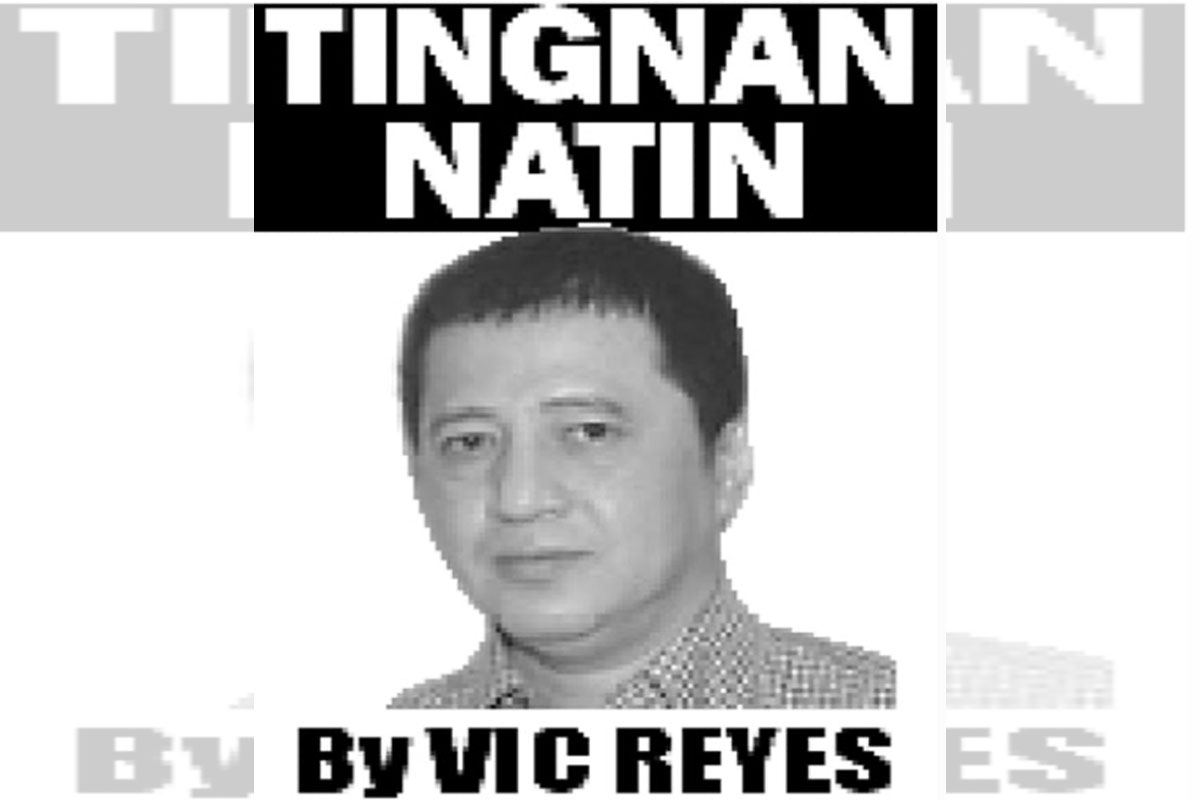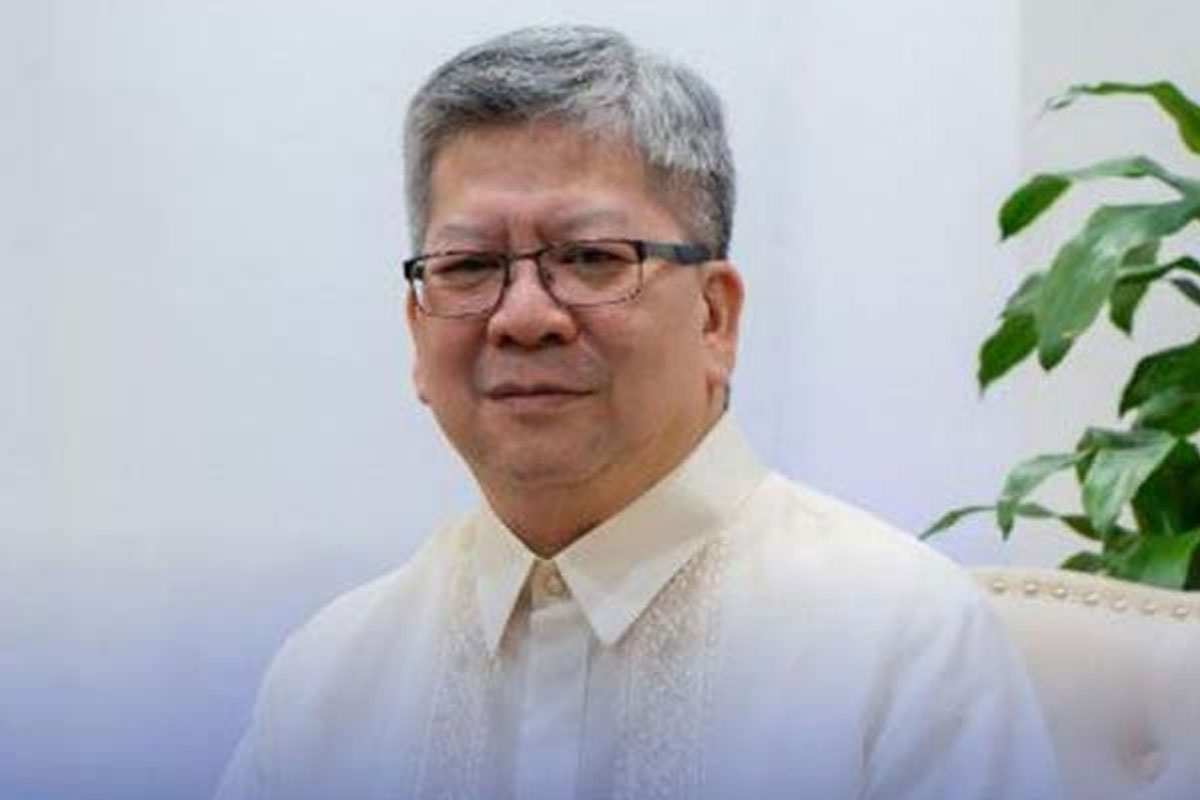
LRay backs PBBM’s farm industrialization move
CAMARINES Sur Rep. LRay Villafuerte has thrown his support behind the impressive plan of the Marcos administration to accelerate the country’s farm industrialization not just to attain food self-sufficiency but, more importantly, to propel it—in the President’s words—into “a leading agricultural resource hub in the region and the world.”
Villafuerte supported President Marcos’ ambitious goal for the Philippines to go beyond just playing catch-up with its neighboring countries on farm productivity, and said one way for the Chief Executive to transform it into a global center is to take his cue from his father – the late President Ferdinand E. Marcos Sr. – who had launched programs such as the Food Terminal Inc. (FTI) in Taguig City for warehousing and processing.
In sync with the President’s plan to improve the agricultural value chain and create more agribusiness market opportunities, Villafuerte said the concurrent agriculture secretary could “replicate and expand the FTI concept by establishing food terminals all over the country, with focus on the main agricultural produce in the different regions.”
Villafuerte, who similarly supports Mr. Marcos’ commitment to sustain the unprecedented state infrastructure spending of his predecessor, former President Rodrigo Duterte, said “the President could tweak this massive infra program in support of accelerated agricultural industrialization by putting up food terminals across the country.”
Keynoting the recent Agrilink/Foodlink/Aqualink trade fairs, Mr. Marcos said that as the country was beginning to see the shape of the new normal, “It is time to once again lay the path for our agricultural industrialization” amid the risks of insufficient food supplies, particularly during the worst of times like natural disasters and calamities.
The President said that rather than just “playing catch-up… it is important that we accelerate all our efforts… to improve the agricultural value chain and aid in the overall development of the small and medium-scale enterprises in the agribusiness sector through the creation of market opportunities.”
He explained that he decided to take on the portfolio of the agriculture secretary, “not only to highlight the importance with which this administration puts on the agricultural sector but also to accelerate the development of that value chain.”
“With our energies and resources combined, I am confident that we will not only achieve our goal of feeding the Filipino people, but also achieve our dream of making the Philippines a leading agricultural resource hub in the region and the world,” Mr. Marcos said.
Villafuerte, a three-term Camarines Sur governor before his election to the House of Representatives, said: “The President is on point in aiming high to transform the Philippines into one of the world’s agricultural resource hubs. Luckily, he doesn’t have to look far in search of doable programs to help him achieve this impressive plan.”
“For one,” he said, “the President can take his cue from his father, the late President Marcos Sr., in replicating—and expanding—the latter’s FTI concept by putting up food terminals all over the country, with a focus on the main agricultural produce in the different regions.”
The president of the National Unity Party (NUP), the second biggest power bloc in the House of Representatives, Villafuerte recalled that the late President Marcos established during his presidency the FTI in Taguig City as a subsidiary of the National Food Authority (NFA) and whose main operations included warehousing, food processing, marketing services and trading of agricultural produce.
“To dramatically boost productivity and raise farmers’ incomes, the current Marcos administration could focus on value-added processing of agricultural products, with state-run food terminals taking the lead in all regions of the country.”
“The President could put up at least one major food terminal in every region, with production, processing, marketing and trading focused on the major farm goods in each region,” he said.
He said the proposed FTI in Bicol, for example, “could focus on coconut as this is the major crop in our region. But instead of concentrating on just coconut oil, we in Region V could focus on processing and packaging for sale here and abroad of such value-added goods as organic coconut milk, sparkling coconut water, skimmed coconut milk, dried coconut milk powder, toasted coconut flakes, desiccated or shredded coconut, coconut chips, and coconut fruit spread and cookies.
Villafuerte earlier backed the President’s decision to take on the position of agriculture secretary in a concurrent capacity, saying such a move sent the “crystal clear” message that the Marcos administration was giving “No. 1” priority to agriculture amid a looming global food crunch.
Villafuerte said the President made “a wise decision in putting a premium on agriculture ahead of a looming global food crunch, given that the country’s nagging food supply woes arising from low rural productivity and unbridled population growth have been exacerbated by the pernicious impact on the world’s agricultural production of the lingering Covid-19 pandemic, volatile oil prices and the Russia-Ukraine conflict.”
He said that with Mr. Marcos’ “Bayan Bangon Muli” presidential campaign promise to uplift the lives of all Filipinos, it was only logical for the President to give paramount attention to agriculture, considering that there are 9.99 million people employed in the farm sector—according to 2018 data of the Philippine Statistics Authority (PSA)—or almost a tenth of all Filipinos.


















